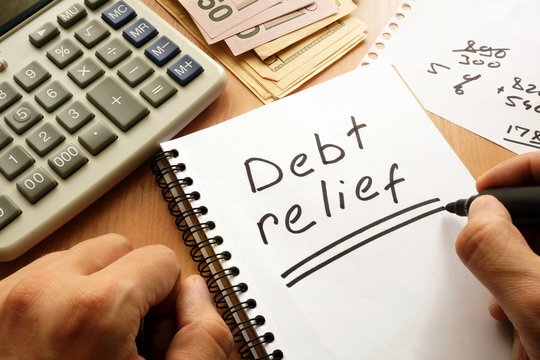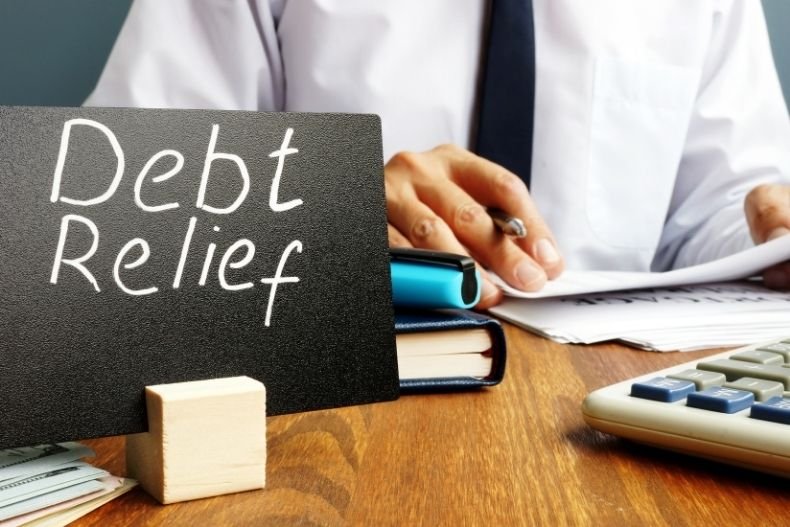Debt can feel like an unending cycle, a dark cloud looming over your financial well-being. But worry not! In this comprehensive guide, we’ll delve into the world of debt relief, exploring various strategies and resources to help you break free from the shackles of debt. Whether you’re dealing with credit card bills, student loans, or medical expenses, you’re not alone. Let’s get started on this journey to financial freedom!

Understanding Debt Relief
What is Debt Relief?
Debt relief refers to the process of reducing or eliminating your debt burdens. It can involve negotiating with creditors, consolidating loans, or even declaring bankruptcy in some cases. The goal is to help individuals regain control over their finances and create a sustainable plan for the future.
Types of Debt Relief Options
Debt Settlement
Debt settlement is an option where you negotiate with your creditors to pay a lump sum that is less than what you owe. This can be a viable solution for those who are struggling to keep up with payments. However, it can impact your credit score, so weigh your options carefully.
Debt Consolidation
Debt consolidation involves taking out a single loan to pay off multiple debts. This can simplify your payments and potentially lower your interest rate. Many people find that this strategy makes their debt more manageable. Just make sure you don’t rack up new debt on your old accounts!
Credit Counseling
Credit counseling services can help you develop a personalized plan to tackle your debt. These organizations often provide education on budgeting and financial management, helping you create a sustainable path forward. Look for reputable agencies that are members of the National Foundation for Credit Counseling (NFCC).
Bankruptcy
When debts become insurmountable, bankruptcy might be an option. Chapter 7 and Chapter 13 bankruptcies can provide relief, but they come with long-term consequences for your credit. It’s essential to consult with a financial advisor or attorney before proceeding.
The Importance of Budgeting
Creating a Budget for Debt Relief
One of the first steps in managing your debt is creating a budget. A budget helps you track your income and expenses, ensuring you allocate funds toward paying off your debt.
Steps to Create a Budget
List Your Income and Expenses
Start by listing all sources of income and all monthly expenses. This will give you a clear picture of your financial situation.
Identify Areas to Cut Back
Look for non-essential expenses that you can reduce or eliminate. Whether it’s dining out less or canceling unused subscriptions, every little bit helps!
Set Realistic Goals
Set achievable financial goals, such as paying off a certain amount of debt each month. Celebrate small victories to keep yourself motivated!

Seeking Professional Help
When to Consider Professional Assistance
If you feel overwhelmed by your debt, it might be time to seek professional help. Financial advisors and credit counselors can provide personalized guidance tailored to your situation.
How to Choose the Right Professional
Do Your Research
Look for professionals with good reviews and a solid reputation. Websites like Zekul.net can provide insights and resources to help you make an informed decision.
Check Credentials
Ensure that the advisor or counselor is certified and has the necessary qualifications. This can help you avoid scams and ensure you receive quality advice.
Understand Fees and Services
Before committing, ask about fees and the services offered. A reputable professional will be transparent about costs and the help they can provide.
Leveraging Resources
Utilizing Online Resources for Debt Relief
The internet is a treasure trove of information when it comes to debt relief. Websites like Cixiq.net and Ucejat.net offer valuable tips, tools, and resources to help you navigate your financial challenges.
Tools to Consider
: Debt Calculators
Use online debt calculators to estimate how long it will take to pay off your debt based on your current payments.
Budgeting Apps
There are numerous apps available that can help you track your spending and stick to your budget. Popular options include Mint and YNAB (You Need A Budget).
Forums and Support Groups
Joining online communities can provide emotional support and practical advice from those in similar situations. Websites like Ijofed.net can connect you with others who are on the same path.
Insurance and Debt Relief
The Role of Insurance in Managing Debt
While it may seem unrelated, having the right insurance can help protect you from unexpected expenses that could lead to debt.
Types of Insurance to Consider
Health Insurance
Medical bills can quickly spiral out of control without adequate health insurance. Ensure you have coverage that suits your needs.
Disability Insurance
Disability insurance can provide income if you’re unable to work due to illness or injury. This can help prevent you from falling into debt during tough times.
Life Insurance
In the unfortunate event of your passing, life insurance can provide financial support to your loved ones, preventing them from inheriting your debts.
Humor in Finances
H2: Finding Humor in Debt Relief
Managing debt can be stressful, but a little humor can go a long way. Remember, “The only thing worse than being in debt is being in debt and having bad jokes!”
Lightening the Mood
Share a Laugh
Talk to friends about your financial struggles—chances are, they’ve been there too! Sharing funny anecdotes can lighten the mood and make the journey feel less daunting.
Use Humor to Motivate
Create funny reminders for yourself, like “Every dollar saved is a dollar closer to my next vacation!” Keeping things light can help maintain your motivation.

Conclusion
In conclusion, navigating the world of debt relief can be challenging, but you don’t have to do it alone. From understanding your options to creating a budget and seeking professional help, there are numerous resources available to guide you on your journey to financial freedom. Remember to keep a sense of humor along the way—it’s the best companion during tough times!
Additional Resources
- For more information, check out Jhanak.sbs for tips and resources on managing debt effectively.
- Don’t hesitate to reach out to financial advisors or credit counselors who can provide tailored advice for your situation.
So, take a deep breath, roll up your sleeves, and start tackling that debt today! You’ve got this!
Leave a Reply